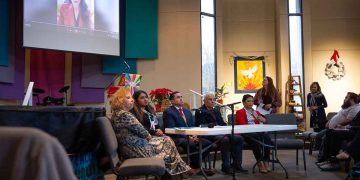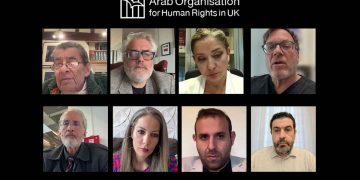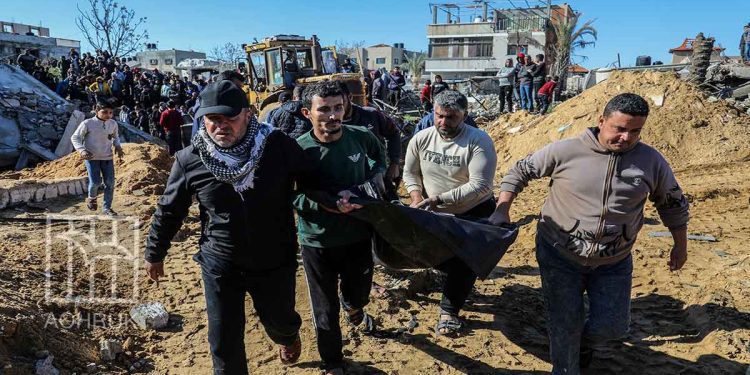Today, Gaza endures one of the bloodiest chapters in its history, where basic human rights are being obliterated under the ongoing assault, and civilian life, particularly for workers, has turned into a daily tragedy.
While the world celebrates International Workers’ Day on the first of May, Gaza raises the question of justice once again: what is the value of commemorating rights when they are crushed beneath the rubble of destroyed homes and factories that once supported thousands of families?
In this context, the Government Media Office in Gaza confirmed that the workers’ sector is experiencing what it described as a “complete inability” to secure a source of income, due to ongoing crimes committed by the occupation with American support, amounting to acts of genocide against civilians.
The statement pointed out that “the global celebration of workers’ rights comes while Gaza’s workers suffer the harshest forms of injustice,” noting that the continuous Israeli blockade for 18 years, coupled with repeated military assaults, has destroyed infrastructure and industrial facilities, rendering it impossible for tens of thousands of workers to maintain employment or find alternatives.
The statement warned that unemployment rates among workers have now surpassed 50%, a staggering figure that places Gaza among the regions with the highest unemployment rates globally, reflecting the magnitude of the economic crisis faced by the besieged coastal city.
It also highlighted that military attacks have not been limited to military sites or infrastructure, but have deliberately targeted industrial facilities and workers’ gathering points, resulting in the killing of dozens of workers and severely injuring many others, leaving them unable to return to work.
The Government Media Office stressed that “the occupation’s targeting of industrial and service facilities, and the destruction of power plants and health services, has exacerbated conditions, making the working environment either unsafe or non-existent,” adding that “workers were among the first and most severely affected groups by this war.”
The statement concluded by emphasising the “urgent need to provide humanitarian support for workers and their families, who now face economic starvation and a total absence of even the most basic elements of a dignified life.”
According to international humanitarian law, targeting civilians’ livelihoods—such as workshops, factories, farms, and civil infrastructure—constitutes a violation of the Geneva Conventions, which oblige parties to a conflict to distinguish civilians and their property from military objectives.
Moreover, imposing a suffocating blockade that hinders freedom of movement and paralyses the local economy is considered a form of collective punishment, prohibited under international law. Thus, Palestinian workers are not merely deprived of their right to earn a living but are thrown into a vicious cycle of poverty, illness, and forced displacement, which, if systematic, could amount to a crime against humanity.
These violations demonstrate that the suffering of Gaza’s workers is not merely the outcome of war, but rather the result of a long-term system of economic and social repression, undermining all principles of justice and human rights that the world claims to celebrate on this very day.



























